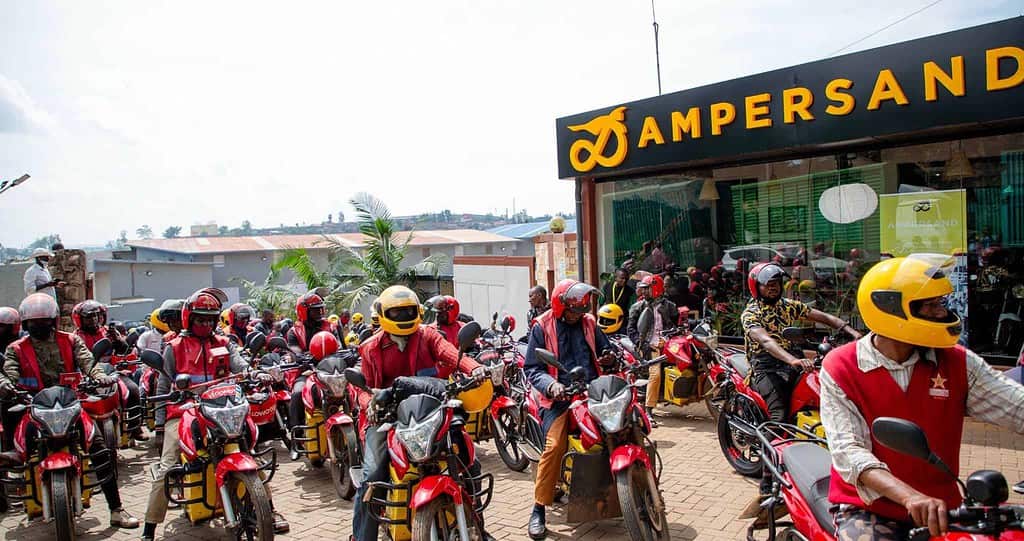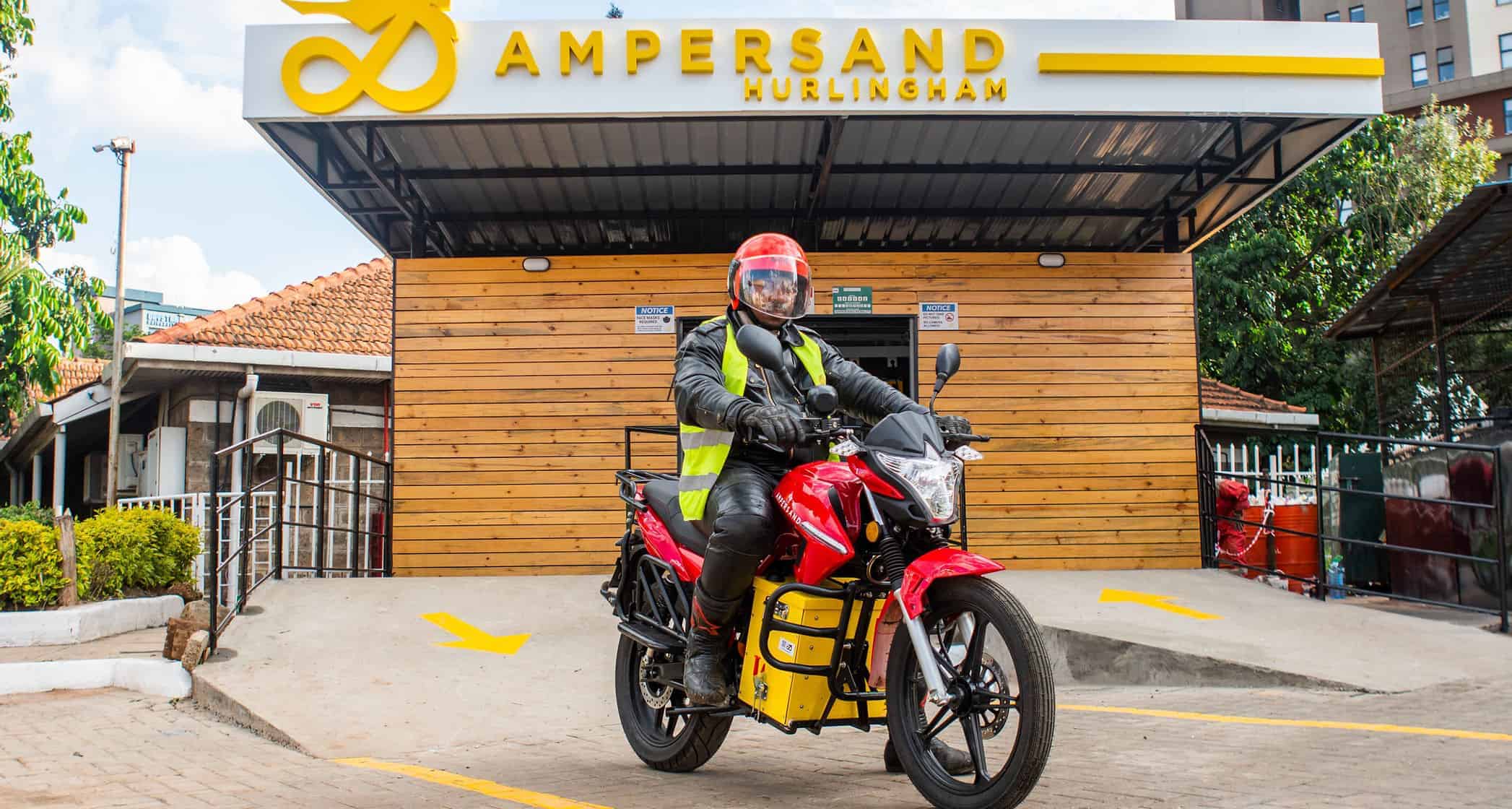Ampersand is leading the e-mobility revolution across Africa
- Blog
- Renewable energy
- East Africa

Call them boda bodas, piki pikis, or motos. Motorbike taxis are an increasingly popular mode of transportation in East Africa. And for good reason. They are an affordable, convenient, and zippy form of travel in the region’s bustling meccas.
For the last 50 years, the mass of motorized bikes has played a key role in the region’s social and economic life, providing rides to work, emergency services, courier deliveries, and other entrepreneurial activities, leaving their mark as symbols of independence and progress. In Kenya, boda bodas are estimated to create income generating opportunities for five million people.
But with rising fuel costs, riders end up spending almost half of their daily gross earnings on gas, leaving just $2.60 per day to take home to their families.
Green Rides, Growing Incomes
Most recently, riders are experiencing a financial boost thanks to the growing presence of electric two-wheelers. Led by companies like Ampersand – the first to introduce electric motorcycles in Africa and a recent investee of Acumen – this shift towards electric mobility is not only reducing greenhouse gas emissions on the continent but also jump-starting rider incomes. “Thanks to Ampersand, I’ve been able to renovate my house and afford clothing for my children,” says a 45-year-old rider.

These battery-powered bikes are slightly more expensive upfront than gasoline models. But Ampersand partners with asset finance companies to make them more accessible. This allows the company to focus on its core competencies while riders reap the benefits of lower fuel and maintenance costs.
Instead of filling up with fuel, riders swap their bike’s electric battery once or twice a day at one of the growing number of swap stations in Kigali and Nairobi. As a result, their incomes have jumped to $3.80, a 46% increase on their daily take home pay.
“I used to ride a motorcycle that used gasoline,” says a 49-year-old rider interviewed by 60 Decibels. “For that, I paid 6,000 Rwandan Francs ($4.74) every week. Now I save that money because this motorcycle doesn’t need that oil. That money is now helping me feed my household.”
Investing in Innovation
“With the innovations in sustainable transport that Ampersand is pioneering, we see a huge potential for improving livelihoods and increasing incomes of those living in poverty,” says Chris Emmott, Acumen’s Associate Director of Investing in Energy Access. “This investment marks Acumen’s first big push into the transition to an electric economy, and fits well with the urbanizing trends in our investment regions. We are excited to be supporting one of the most promising innovators at this early stage of e-mobility in Africa.”

As a first mover in e-mobility on the continent, Ampersand has lofty goals. By 2030, the company aims to serve 1,000,000 vehicles with battery swaps at its charging stations. This is in line with the Kenyan government’s goal of having 200,000 electric bikes on the road by the end of 2024.
“Our made-in-Africa battery fleet already leads the world in cost per kilometer and uptime for light-electric vehicles,” says Josh Whale, CEO and Founder of Ampersand. “Our technology continues to advance, alongside the now-rapid-march of government e-mobility policies across Africa and removal of fuel subsidies, our addressable market continues to grow.”
Breaking Gender Barriers
But significant growth does not come without challenges. In Kigali, of the 62,000 people who drive motorbikes, 30% are registered as taxi drivers, according to a RURA (Rwanda Utilities Regulatory Authority) study. Just 40 of them are women. For a sector that employs the third largest number of people in Rwanda – behind agriculture and the informal sector – it’s an unmet opportunity to address gender inequality. “It’s a big miss,” says Whale, who notes that 29 of the 40 women ride Ampersand bikes. “We’re working on a second program with UN Habitat and GIZ to get women on bikes.”
With the increasing number of drivers choosing electric batteries over petrol to power their bikes, Ampersand is on track to become the “energy brand of the future.” An ubiquitous presence on every corner of every street. Recharging millions of bikes, incomes, and livelihoods.
This is Acumen’s first e-mobility investment under its PEII+ facility. PEII+ is a 5-year, $25 million dollar initiative that invests early-stage capital in companies that provide renewable energy-powered appliances – from mills and irrigation pumps to electric motorbikes and refrigerators – to microentrepreneurs and smallholder farmers in India and East and West Africa. The goal is to leverage these technologies to boost incomes and climate resilience in vulnerable communities.